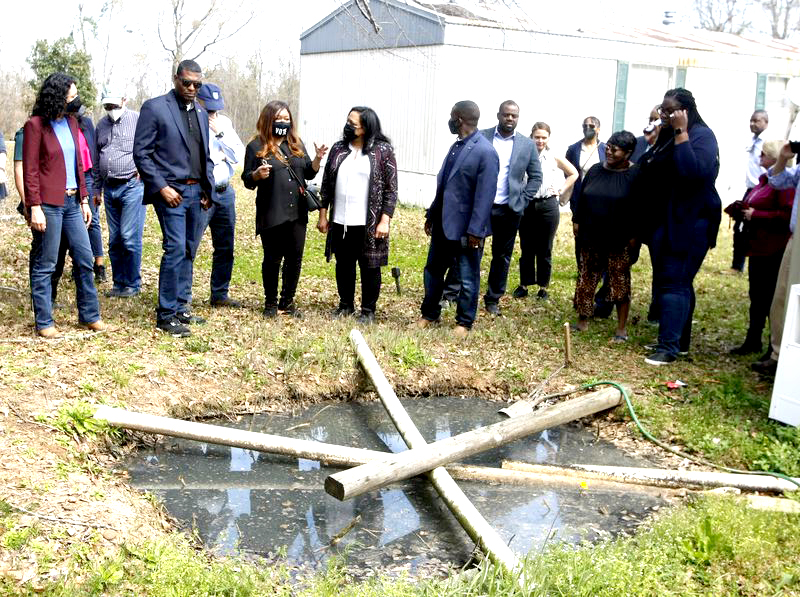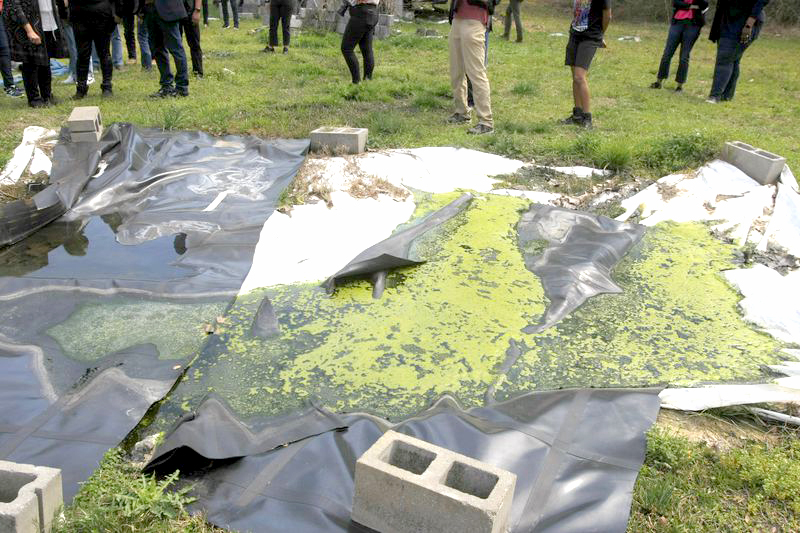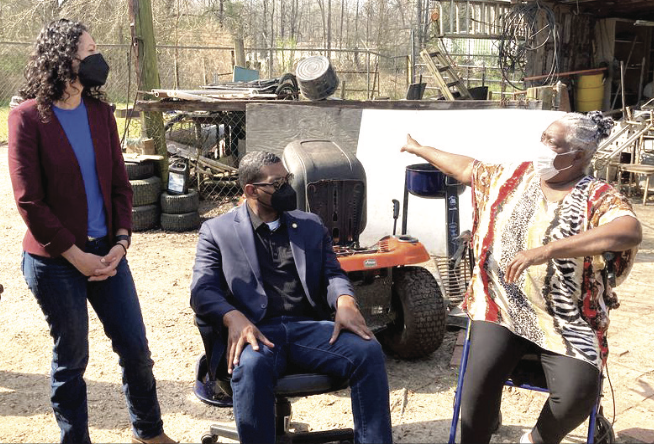By Dennis Pillion, The Associated Press
On the eve of the Selma Jubilee, commemorating the “Bloody Sunday” march that helped catalyze support for the Voting Rights Act 57 years ago, the head of the U.S. Environmental Protection Agency toured Alabama’s Black Belt to witness a different kind of struggle: the battle for clean water and basic sanitation.
“It’s very sobering to see that in 2022, in the United States of America, there are people who are subjected to situations that I don’t think any of us would want to be subjected to,” EPA Administrator Michael Regan said after touring local homes dealing with wastewater system failures in Alabama’s Black Belt.
“Straight piping into lagoons, failing septic systems, waste and raw sewage backing up into yards into homes, seeing children have to walk around delicately so that they don’t sink or get bogged down into their own front yards. This is not the America that we all know it should be.”
Regan – along with U.S. Department of Agriculture Undersecretary for Rural Development Xochitl Torres Small and other officials from the EPA and USDA – went to three different properties in Lowndes County Saturday, seeing homes where malfunctioning septic systems discharged untreated sewage into backyards and in between mobile homes, and where some residents had nowhere to go to address their sewage issues.
Regan and many of the others on the tour plan to attend the events in Selma on Sunday, along with Vice President Kamala Harris.
“This is unacceptable,” Regan said. “Safe drinking water, safe sewer systems, you know, this is a basic right. These individuals deserve what every American deserves, which is clean water and a safe environment.”


Wastewater treatment in parts of Alabama’s Black Belt has been a problem for decades. Much of the area is too rural for traditional sewer lines and waste treatment plants to be cost effective, and most septic tank systems don’t work well here due to the heavy clay soil in the region that traps water at the surface.
Officials with the state, federal and local governments, as well as Alabama’s research universities have been working on solutions for years, and Regan and Torres Small said funds being made available through the Bipartisan Infrastructure Investment and Jobs Act of 2021 could help finally refine and implement those solutions, but that it would take continued cooperation
“This is a problem that people have been working on for 20 years,” said Torres Small. “And we now have this historic opportunity with an investment in water and wastewater, to work together to truly make some progress.”
Saturday’s tour was led by Catherine Coleman Flowers, activist and author, who recently won the MacArthur “Genius Grant” for her work to draw attention to the plight of those in Lowndes County and other rural areas.
During the event which was open to the press, some residents who had not previously spoken out about their experiences came forward to speak with the delegation from Washington D.C. and the EPA Region 4 office in Atlanta.
“Today, people found their voices,” Flowers said. “They came and they spoke to the administrator, and they spoke to the undersecretary about the problems and the struggles that they’re dealing with.”
One of those was Jerry Smith, 59, and her granddaughter Payris Bell, 3, who shared her multi-colored Teddy bear with Regan after Smith explained their situation living in Lowndes County.

“When it rains, all this whole area floods and the waste comes right behind,” Smith said. “That’s what we’ve been dealing with.
“This is ridiculous that we, you know, we pay taxes on this property and the property is contaminated.”
Regan said his meeting Payris and other children impacted by the sanitation problems was the most memorable aspect of his trip to Lowndes County.
“I’m going to remember the two children that I saw today, that still have a lot of hope and optimism in their eyes,” he said. “This has become normal for them. I’m going to remember them and their faces and the teddy bear that the young lady had, as she walked with us.
“We owe them. And so this is something that will get done. We are committed, all of us are committed, to getting this done.”











